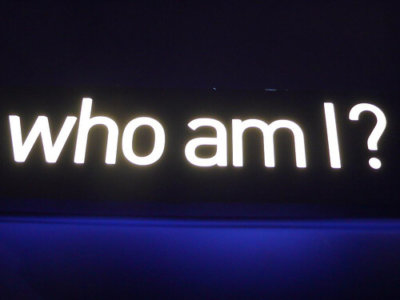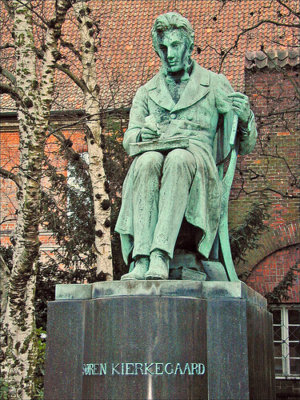What is Existential Psychotherapy?

By: Banalities
When existential therapy came into being it was rather revolutionary, in that it believes in finding ways to improve wellbeing not by looking to psychology or to medicine, but to philosophy.
What is existential psychotherapy?
It is a talk therapy that recognises that the meaning and purpose we feel in life is hugely important to our sense of wellbeing.
It is when we doubt our purpose that we find ourselves anxious and distressed, or in a state of despair. So instead of trying to sort out your life just by looking at your psyche and life history, existential psychotherapy helps you look at the human condition as a whole, and your place within it.
Nowadays, many a modern therapist will integrate existential ideas into their work with clients, helping you look at your core beliefs, perspective, and values.
But existential therapy itself, and the psychotherapists who identify as purely existential, still standout as unique against a sea of largely psychoanalytical and cognitive based approaches.
A brief history of existential psychotherapy
You could say that existential psychotherapy began long ago with the great philosophers like Socrates, and the very beginnings of questioning who we are as humans.
Although most would say that existential psychotherapy has its roots in the rise of existential 19th Century philosophers Kierkegaard and Nietzsche. They were the fathers of a movement that revolted against a tradition of looking for order and structure in the world, instead suggesting that as humans it is up to us to find meaning in what is largely a meaningless universe, embracing our existence and utilising our free will and ability to choose.
Other well-known existential thinkers that followed include Sartre, Heidegger, Camus, and Simone de Beauvoir. Edmund Husserl is notable for putting forth the theory that life is experiential over logical – it must be perceived to be understood .
This was called ‘phenomenology’, and it was the bridge for existentialism and psychotherapy when Otto Rank, an Austrian psychoanalyst who broke away from Freud, decided to apply this concept to his work with clients.
Others notables to then expand on the marrying of philosophy and psychotherapy included Paul Tillich in America, whose work influenced humanistic psychology, and Viktor Frankl, the creator of logotherapy who contributed the deeply valuable idea that we an choose to find meaning in all experiences, even the difficult ones (he himself was a survivor of a concentration camp).
England played an important part in the existential psychotherapy movement as it was the birthplace of several experimental and alternative ‘therapeutic communities’ in the 1960s and 70s. This was largely an anti-psychiatric movement, questioning how helpful the methodology of medicine and institutionalisation really was, and instead offering safe and supported places for people to ‘live out’ their so-called ‘madness’, with some existential psychotherapy leaders like Emmy van Deurzen even living on premise.
Two of these associations are still around today, including the Philadelphia Association and the Arbours Association in North London, which still runs residential centres.
Concepts of existential therapy
Existential thought is a vast field, meaning existential psychotherapy itself has had different branches and movements and no single stringent viewpoint. But here are some main concepts that existential psychotherapists might use in their work with you.
Contentment comes from understanding our lives and our ‘big picture’, not just our thinking.
Looking at the psyche is not enough. We must ask philosophical questions and find answers we are content with if we are to feel comfortable in our lives. How do we exist in the world, where do we come from, where do we want to be headed?
We must face the fact that we are fundamentally alone.
We all live out the great contradiction of life – longing to be connected to others, but only being able to find true validation from within. This means that we are all actually alone in our journey, which can be the root cause of anxiety for many.
 Anxiety arises when we come up against life’s ‘givens’.
Anxiety arises when we come up against life’s ‘givens’.
Human existence involves certain things, whether we like it or not, which existential therapist and writer Irvin Yalom termed ‘existential givens’. The four primary ‘givens’ are:
- death/mortality
- isolation
- meaningless
- freedom (and the responsibility it brings)
When we inevitably have to deal with these ‘givens’, they can cause anxiety and long-term mental health challenges if we do not learn to accept them, not be overwhelmed by them, and make good decisions when up against them.
Finding our own version of purpose and meaning is crucial to our wellbeing.
Inner peace develops form finding clarity on what we want life to be about and understanding what truly matters to us as an individual, outside of the influence of others and even society. What is essential for you, personally? Who are you beyond the daily patterns you live out? What makes you want to get up in the morning and what would you like to have achieved when you are on your death bed?
We encounter the world on different levels that connect to give us our own definition of reality.
There are different and interlinked ‘dimensions’ of existence that we encounter the world in, which are physical, social, psychological, and spiritual. In each area we tend to have aspirations and fears we can identify and question in our search for understanding ourselves, our place in the world, and what has meaning for us personally.
Acceptance, freedom of choice, and responsibility are the ways forward.
To overcome our anxieties about life, we must accept that life will not be easy but will have challenges. Then we must recognise that the life we are living is one we have created by the choices we have made – by taking responsibility for our decisions, we can then courageously exercise our freedom of choice to make better ones for our future.
Meaning can be found in every situation.
Life can sometimes be very difficult. And yes, one can say, like Camus, that it is all meaningless – but this frees us to then decide what meaning things will have for us personally.
Viktor Frankl first suggested that life has meaning under all circumstances, not just some, and that if we think something is meaningless it is just as we have not yet discovered the meaning available to us.
A practical way forward
Existential psychotherapy might be rooted in philosophical thought, but it is not by any means a form of wishful thinking. An existential psychotherapist, like any good therapist, is invested in helping you see positive change in your life.
By asking good philosophical questions of yourself, you will not just understand yourself better, you will be in a position to move forward towards a life you actually want and feel inspired by.
Have a question about existential therapy you’d like answered? Or would you like to share your experience trying this kind of therapy with our readers? Comment below.





